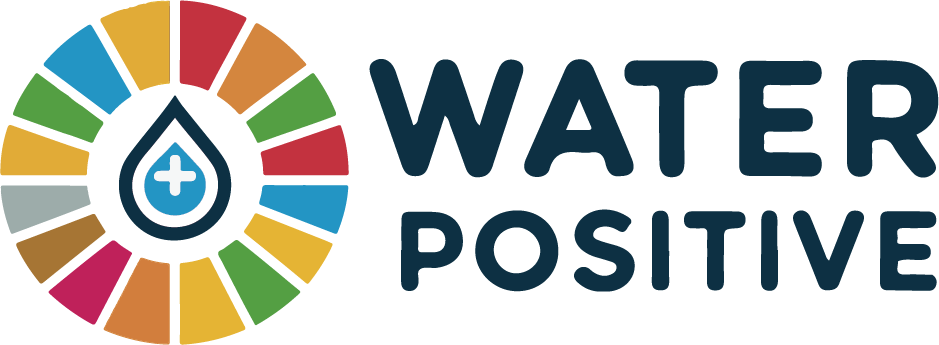Water Positive Think Tank
The Water Positive Think Tank (WPTT) is a group of more than a hundred professionals from different disciplines, continents, cultures, and traditions, voluntarily gathered to think, analyze, and share knowledge about the water cycle; its production, conservation, transformation, and depletion. The current scenario demands it, since if corrective actions are not initiated, close to two billion people will not have access to water by 2050. We must study, promote, and advocate for what is necessary to reverse this situation, and to do so, we will collaborate with any association that is open to this common purpose, leveraging all our acquired knowledge, and working together to achieve a future that leaves no one behind.
At the United Nations Water Conference in March 2023, organized in New York, the second after the Mar del Plata conference in 1977, the founders of the think tank understood that the call to action, so present in each presentation at that event, was an appeal to the direct and personal commitment of those who had the knowledge and experience: we had to assume this responsibility. Immediately, more than fifty professionals joined this group of thinkers, where participation, freedom of thought, and above all, a scientific and systemic approach prevail to seek synergies and jointly promote advances in the 2030 Agenda and the necessary Water Resilience for all.
90% of the world’s water footprint is generated by industry, with only the remaining 10% for direct human consumption, although 100% is a consequence of the anthropogenic effect. Water is essential for consumption, but it is also essential for the production of other equally necessary
goods. The analysis approach must necessarily be global, holistic, without pitting those uses against each other as rivals: we need water
for human consumption, as well as for producing our food, clothing, homes, or clean energy. We often think of water in SDG 6, but in reality, it is involved in each of the SDGs. The global economy depends on the production of goods, services, and energy, so if we were to lower the level of production due to a lack of water resources, the number of people affected would be much more than two billion, and not only due to a lack of water but also food.
Our initiative and model take into account a regenerative economy in water resources, so that the higher the level of production, the more available fresh water the model regenerates. The three dimensions proposed by the NPWI (Quality, Quantity, and Accessibility) are at the center of the system, and water purification, storage, and distribution in a sustainable way are key.
The concept of “Water Positive” encompasses all the strategic actions of an entity that lead to a net positive contribution to water resources where a negative impact on resources would have occurred, taking into account the traceability of the water footprint (because in some cases, the impact is generated far from the place where the company operates).
Our objective is to collect and organize each action that leads to a positive impact on water resources in a sustainable way, in the three dimensions mentioned (quality, quantity, and accessibility), and make them available in the Water Positive Framework to understand, analyze, and disseminate them in a simple and clear way, and above all, based on scientific evidence.
Target Audiences
- CEOs, Chief Sustainability Officers (CSOs), and other sustainability managers in the private sector
- Non-governmental organizations (NGOs) and other implementers of water-related projects
- Startups and innovative companies developing water-related solutions
- Public officials involved in the development of water-related public policies
Promoting a Global Alliance of Associations for Industrial Water Footprint Compensation
Initiating and strengthening a worldwide network of organizations focused on water resources, with the key objective of neutralizing the industrial water footprint, which accounts for approximately 90% of global water consumption. This alliance, conceived as an SDG 17 partnership, will commit to promoting and adopting Water Positive practices through the use of unconventional water resources, which are the only source capable of producing the volume of water needed to offset the industry’s footprint and tackle water scarcity in water-stressed basins. While savings and efficiency have made significant progress in recent years, It is clear that a much larger quantity of fresh water needs to be generated to meet existing and growing demands.
This network will facilitate effective collaboration, the exchange of knowledge, regulations, and advanced technologies, and the implementation of coordinated strategies to significantly reduce the industrial water footprint, marking a significant step in water resource management through what we like to call the second membrane revolution after its discovery.
From the WPTT, we look forward to collaborating with all corporations committed to this initiative, alongside non-governmental organizations (NGOs) related to water, energy, and food, as well as universities, so that by 2050, we find ourselves in a better situation than what we have been forecasting based on current water resource trends.
Our Purpose
Our team of over 100 dedicated leaders from around the world, representing more than 20 different disciplines, works together in a transdisciplinary, inclusive, and consensus-driven approach, placing science at the forefront of our decision-making process. Motivated by a shared vision of a better world, we collaborate to share our knowledge and strive to make a positive impact on global water resources. Our contribution, firmly grounded in science and technology, is inspired by the actions taken by the corporations spearheading this initiative and the clarion call from the CEO Water Mandate of the United Nations Global Compact and its Water Resilience Coalition for companies to embark on the Net Positive Water Impact (NPWI) journey.
Our mission is to propose complementary methods to those currently in use, emphasizing water purification through non-conventional water resources. By doing so, we aim to provide a renewable and sustainable water source that offers an unlimited, climate-independent alternative to all stakeholders. Although this work is not intended to serve as an exhaustive guide to corporate water replenishment decisions, we firmly believe that it will augment existing guidance documents and resources, empowering leaders in this field to expand the range of possibilities and accelerate the achievement of committed outcomes.
Like the corporations that have embarked on this journey, we acknowledge that our learning process is continuous and that there is still much to discover and share. As outlined in Sustainable Development Goal 17, “Partnerships for the goals,” we are committed to standing alongside those who require assistance in achieving a positive impact on water resources across three dimensions: availability (quantity), quality, and access.
We eagerly anticipate sharing updates as we refine our strategy and expand our project portfolio.
Governance Structure 2024-2026
During the Q3 2024 meeting of the Water Positive Think Tank, the governance structure for the 2024-2026 term was confirmed. The roles were distributed as follows

Daniele Strongone
President

Esmeralda Leyva
Vice President
Alejandro Sturniolo
Secretary General
Eduardo Orteu
Head of Legal and Regulatory Affairs
Water Positive Think Tank Founders

Daniele Strongone

Walid Khoury

Björn Otto

Carlos Foxley

Javier Romero

Tracey Nolan-Shaw

Andrew Walker

Nicolás Ibieta Illanes

Marcio Da Silva

Eduardo Pedroza

Juan Pablo Camezzana

Luiz Fernado Bezerra

Elena de la Vieja

Abraham Negaresh

Eduardo Orteu

Hugo Lecaros

Henry Charabe

Marc Blanchet

Borja Blanco

Graciela Chichilnisky

Ruijia Gu

Guillem Gilabert Oriol

Gisel Booman

Marta Oteguie

David Gonzalez

Victor Monsalvo

Guillaume Clairet

Mazen Ellabban

Paula Pérez Sánchez

Nick Nelson

Jorge Juan Malfeito

Giancarlo Barassi

Georg Helborg

Joan Galtes

Patricia Terrero

Antonella Maggioni

Pablo Ruiz Molina

Antonella De Luca

Mariela Cuartucci

Mo Malki

Ale Sturniolo

Jochen Kallenberg

Ana Lopez

Miguel Sanz

Mike Dixon

Troy Green

Juan Buceta

Rebekkah Swisher

Mohamed Ibrahim

Gabriel Blejman

Jon Beristain

Ale Roman

Silvio Oliva

Devesh Bharadwaj

Manuel Rubio

Jerry Ross

Esther Gonzalez

Fernando Saroglia

Manuel de la Mata

Eva Jalon

Pablo Crespo

Maria Elena Rodriguez Hernandez

Graciela Chichilisnky

Domingo Zarzo

Miriam Brusilovsky

Will Sarni

Tom Freyberg

Juan Miguel Pinto

Jose Manuel Pano

